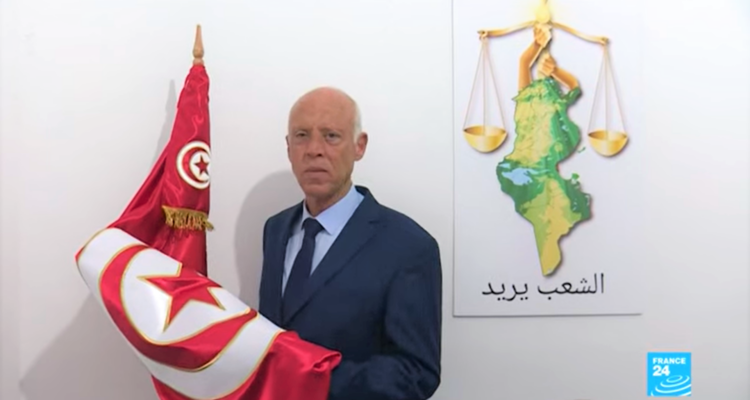According to Kais Saied, the storm is evidence of Zionist “attack on the thought and mind” because of its name, Daniel, despite the prophet holding significance in Islam, too.
By World Israel News Staff
In a bizarre antisemitic outburst, Tunisian President Kais Saied on Tuesday appeared to blame Israel for the recent storm that devastated Derna, Libya, a conclusion he arrived at because of the “Zionist influence” in naming the storm “Daniel.”
Historically, storm names are chosen through established conventions which often involve using sequential letters of the alphabet or assigning both feminine and masculine names.
Nevertheless, Saied asserted that the naming of the storm bore testament to Zionism’s burgeoning influence. The storm, he said, is evidence of Zionist “attack on the thought and mind.”
A quarter of the city of Derna has been wiped out in the storm and subsequent flooding, killing several thousands. At least 9,000 more people are still reported missing.
https://twitter.com/MonicaLMarks/status/1703974861113029044
Critics pointed out the multi-faceted significance of the name “Daniel,” which not only holds importance in Jewish tradition as a Hebrew prophet, but also finds a place in Islamic tradition, with associated pilgrimage sites in Iraq and Iran.
Saied’s statements have aggravated existing concerns about the escalating authoritarian regime in Tunisia, a country already spotlighted in recent migration disputes involving European and North African nations.
A deadly attack in a synagogue in the Tunisian city of Djerba in May, in which two Jewish worshipers and three Tunisian national security guards were shot to death, prompted more antisemitic vitriol from Saied, who claimed that the attack was not antisemitic in nature and suggested that people who believe the murders were motivated by Jew-hatred are part of a “conspiracy” to tarnish Tunisia’s international image.
Saied then went on to charge that antisemitism does not exist in Tunisia – a country which does not acknowledge Israel’s existence – saying that a focus on Jew-hatred is a smokescreen for covering up alleged human rights violations against Palestinians in Gaza.
Deborah Lipstadt, the United States’ antisemitism envoy, called his remarks “distressing.”
“We’re very distressed by President Saied’s pushing back – as if we had said Tunisia was antisemitic, which we did not say,” Lipstadt said. “[We] said the attack was an act of antisemitism. And then his pivoting to Gaza…that was antisemitic.”
Days after the five were murdered, Saied compared the Jewish state to Nazi Germany. “While Tunisians protected Jews during the Holocaust, today elderly, women and children are being bombed in Gaza,” he said.




